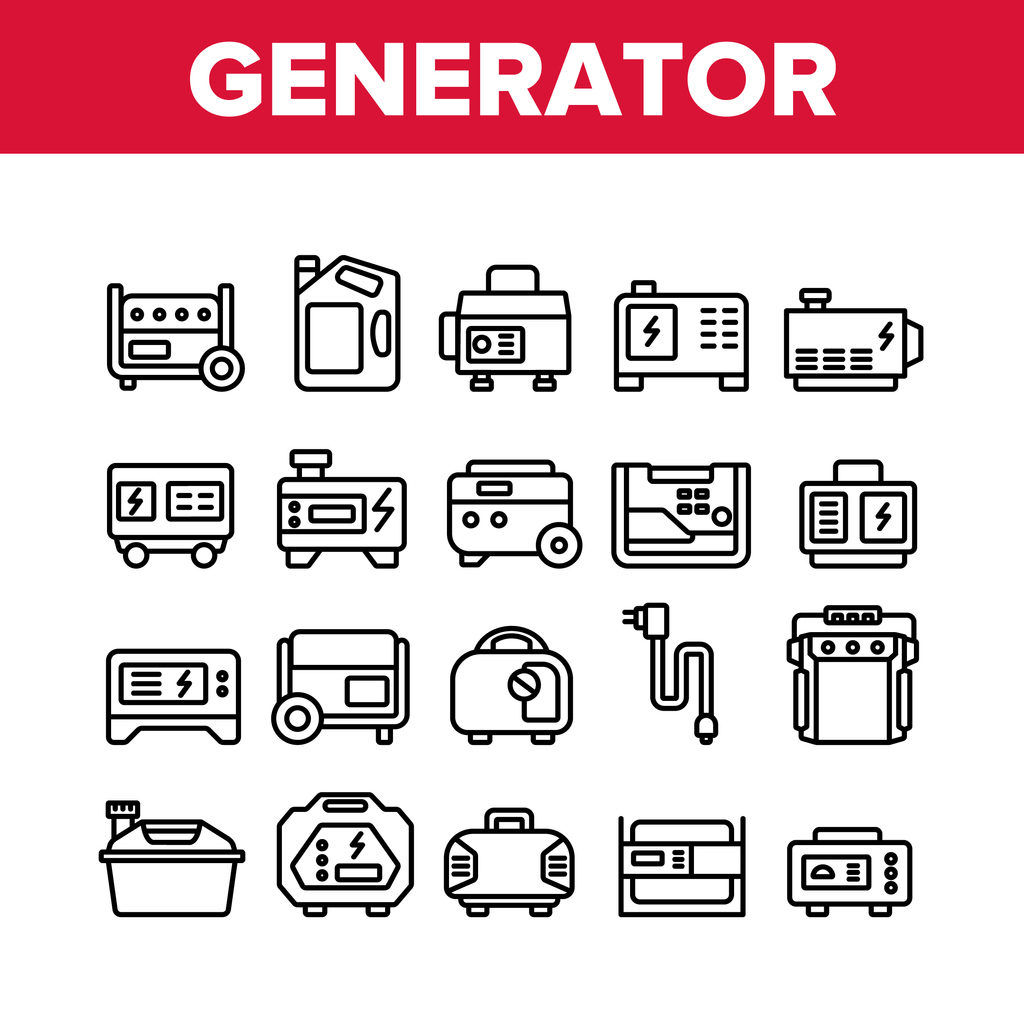Generators are powerhouse appliances that can supply energy at home, on the go, or on the job. They can provide electricity for anything from a power tool to a fridge, and larger generator models can even provide enough energy for an entire house that may be experiencing a power outage due to a natural disaster or grid failure. But while generators are a mainstay for many families and businesses, most people don’t know how they work or how they manage to provide power. Here’s what you need to know.
It’s important to first remember that generators do not create electricity or energy on their own. Instead, they convert mechanical and/or chemical energy into electrical energy through the alternator. Generators first need gas, diesel, or propane to work, which they then use to generate electricity through electromagnetic induction.
English scientist, Michael Faraday, discovered electromagnetic induction in 1831 when he realized that when a conductor moves in a magnetic field, electrical charges would be created, along with a current flow. Faraday discovered this when he wrapped two coils of wire around an iron ring and passed a current through just one of them. The current then moved into the second coil of wire. A generator works similarly to that magnetic field, as it moves its wires near a magnet to direct the flow of electricity outward.
As far as the exact parts of the generator that are directly related to its electrical output, you should look to the fuel system, the engine, and the alternator.
A generator’s size will determine how much power the generator will output, while the generator’s fuel tank is what supplies the engine and what kicks off the start of the electrical energy conversion. The alternator contains a stator and rotor, and those two pieces create the rotating magnetic field and the output that will power your appliances or home.
Check Out More Of Our Portable Generator Reviews
How Do The Best Portable Generator Brands Compare? We Have The Top List
5 Best Value Generators for Your Home
Best Bang for Your Buck – Picking a Small Generator at the Best Price
Top 8 Uses for Portable Generators
These are the 5 Best Portable Generators for the Cheapest Price Today
FAQ
Standby generators work in the same manner as portable generators, but they are connected directly to a building (such as a home or hospital) and automatically turn on when there’s a power outage. Because of this, they have large fuel tanks and can be used for longer than portable generators.
Generally, portable generators will not be able to run all day long, and depending on the exact specifications, you can expect anywhere from 3-12 hours of runtime. For standby generators, you can expect about 21 days of power, but it’s still recommended to check on the generator during that time and possibly switch it off to rest.
A generator should never be placed inside, even if you plan on opening a door or window, as CO2 can still build up inside your home. Make sure to place the generator at least 20 feet away from your home or building, and direct the exhaust pipe away from windows or vents.
You can use a regular extension cord, a specialized extension cord that is meant to be used with generators (a gen-cord), or a power transfer system—a system that provides the safest connection, as it connects to a single source (your home circuit) instead of multiple appliances.
When it comes to buying a standby generator, you’ll need to budget for the actual generator as well as installation. Depending on the model and size of your home, you can expect to spend anywhere from $2,000-$5,000.
